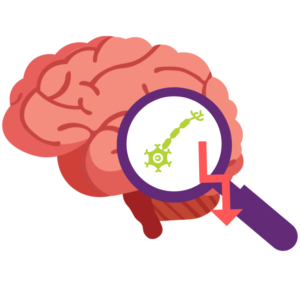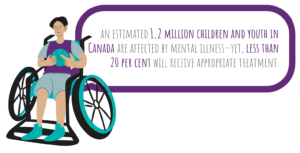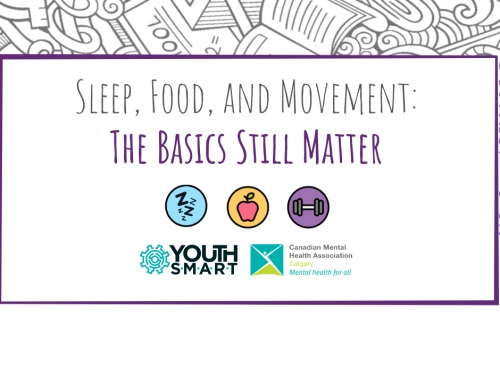Television shows, movies, podcasts, books, and other forms of entertainment have not always been too kind when portraying what mental health and mental illness looks like in people.
As an example, a film that has a character with a schizophrenia diagnosis is often portrayed as violent, disturbed, involved in criminal activity, not getting along with others, refusing help from others, and at some point receiving heavy doses of medication in order for them to “calm down.”
Although this may be the extreme case for that particular character in a fictional film, it does not give the audience a true representation of schizophrenia and how it affects the everyday person.
Since streaming sites like Netflix, Crave, and HBO Max are readily available to watch and are constantly being accessed, more and more people are exposing themselves to entertainment that doesn’t always get it right about mental illness.
Influence In Media
So why is this important to know?
It’s important to understand and know the major influence media has on people, especially youth.
Think about your favourite YouTuber—have you ever purchased something based on their recommendation? Or watched another content creator because of their suggestion?
No matter what or who you’re watching, reading, or listening to; that piece of media, and the people behind it, can deliver messages to the listener that can impact and influence your ways of thinking.
Even though those portrayals are based on opinions and stereotypes, some may believe it to be fact because of their admiration and respect for the person(s) creating that kind of media (e.g. director of a movie, podcast host, Youtuber, etc.)
Since mental health and mental illness have been hot topics to talk about online, in podcasts and showcased in television and film, it has many interpretations by many different people.
Mental Illness Interpretation
Some people don’t realize the severity a mental health challenge can cause because it’s not a physical ailment like a broken bone. Even when the effects are physical, such as an eating disorder, the character they have created only scratches the surface about how it actually affects the mind.
It’s important to know about the effects of mental illness and how they are just as impactful to the body as a physical illness (diabetes, cancer, etc.).

Research has discovered that people with mental illness have lower levels of dopamine and serotonin in their brains.²
Commonly misinterpreted as being “lazy” in movies and television shows, people with diagnoses of depression experience extended periods of sleeping, disruption of their eating patterns, and a lack of physical activity. These are effects of their mental illness—not personal choices.
Although some people might appear able-bodied, their brains are not receiving the proper chemicals they need to act, behave, and think clearly.
Next Steps
Being self-aware about the media you’re consuming is one of the best preventions you can do from being misinformed about certain topics.
The exaggeration and dramatization of mental illness not only taints the severity of that mental illness, but directly affects the perception people will have against those with mental illness.
Having a negative lens encourages stigma which may stop someone with a mental health challenge to seek the appropriate care they need.
Doing your research, volunteering, and connecting with mental health initiatives is another way to make sure you are basing your knowledge on facts, not just opinions.
Meeting someone with a mental health challenge is all too common in this day and age. According to Youth Mental Health Canada, an estimated 1.2 million children and youth in Canada are affected by mental illness—yet, less than 20 percent will receive appropriate treatment. By age 25, approximately 20 percent of Canadians will have developed a mental illness.¹
Exercise the act of kindness to all of your peers, friends and family members that they will find hope, connection, and recovery in their mental health journey.
¹”Youth Mental Health Stats in Canada,” Youth Mental Health Canada, last modified December 22, 2021, https://ymhc.ngo/resources/ymh-stats/
²”Dopamine and serotonin: Brain chemicals explained,” Medical News Today, retrieved December 24, 2021, https://www.medicalnewstoday.com/articles/326090#serotonin

You are not alone. There is help.
If you cannot find someone you trust who is willing to support you, dial a crisis line right away at 403-266-HELP (4357) All crisis lines are confidential.



